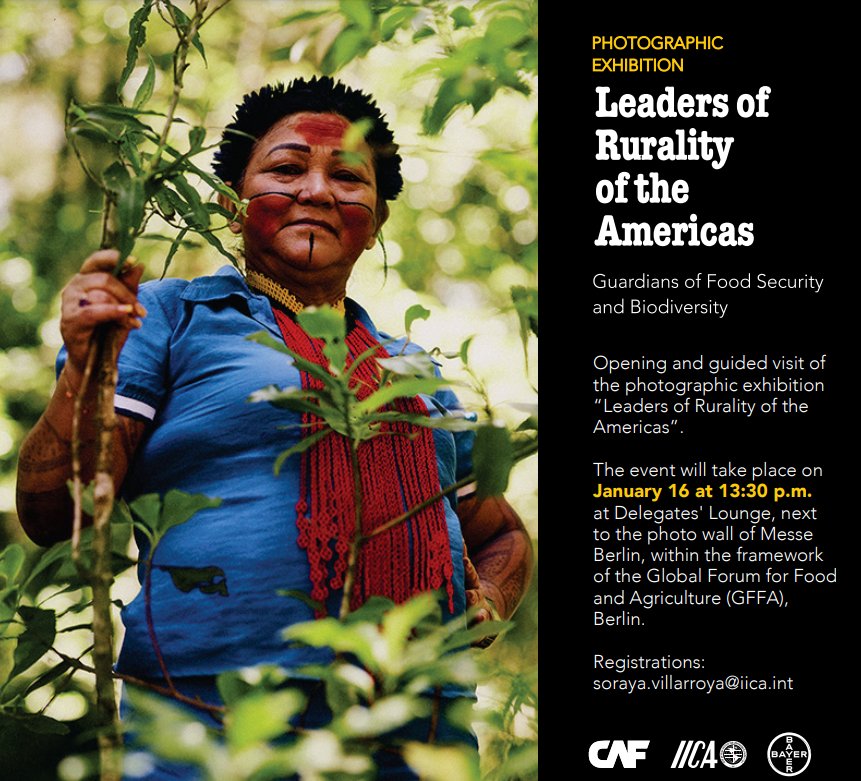Cuando Trigidia Jiménez empezó a cultivar la cañahua, esta solo era utilizada para autoconsumo en Bolivia, pero hoy es producida por más de 1.500 familias que la comercializan.
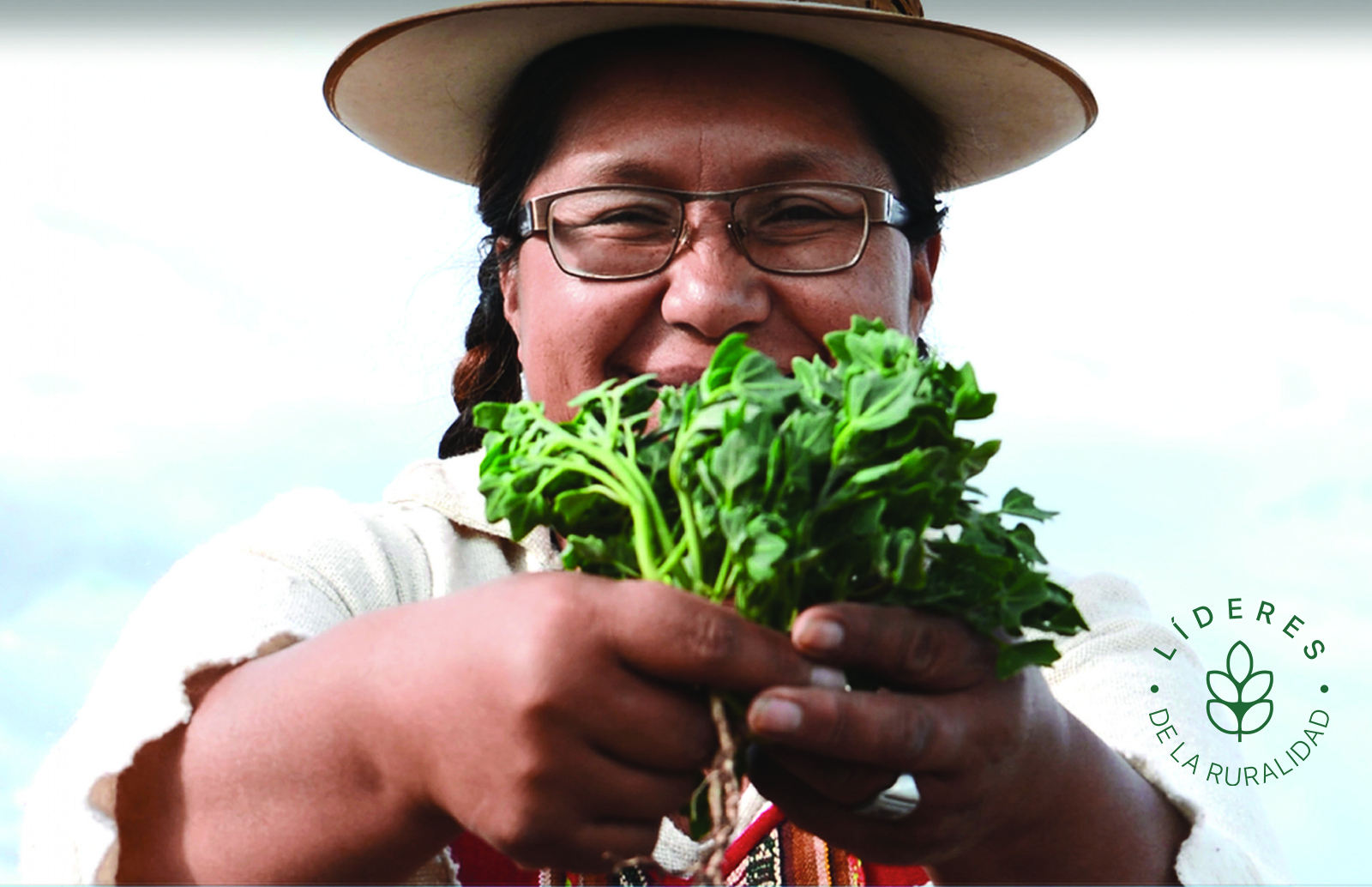
San José, 25 de abril de 2022 (IICA). La ingeniera agrónoma boliviana Trigidia Jiménez, quien combinó saberes científicos y ancestrales en Bolivia para potenciar el cultivo de la cañahua, fue reconocida como una de las “Líderes de la Ruralidad” de las Américas por el Instituto Interamericano de Cooperación para la Agricultura (IICA).
Jiménez es una mujer quechua que se propuso rescatar un grano de alto valor nutritivo cuyo cultivo fue desarrollado por los pueblos indígenas en tiempos prehispánicos pero luego fue desplazado por alimentos introducidos en Bolivia. Cuando ella empezó a cultivar la cañahua, esta solo era utilizada para autoconsumo, pero hoy es producida por más de 1.500 familias que la comercializan.
El premio, denominado “Alma de la Ruralidad”, es parte de una iniciativa del organismo especializado en desarrollo agropecuario y rural para reconocer a hombres y mujeres que dejan huella y hacen la diferencia en el campo del continente americano, región clave para la seguridad alimentaria y nutricional y la sostenibilidad ambiental del planeta.
Trigidia se crió en el campo y heredó de su padre la pasión por la agricultura. Desafiando los estereotipos de género, realizó estudios universitarios y trabajó durante años en la ciudad, pero a los 45 años, casada y con cuatro hijos, decidió volver al campo para reencontrarse con sus raíces.
Es una de las impulsoras de la “Red Nacional de Saberes y Conocimientos en Cañahua”, organización que busca darle visibilidad a este cultivo, dada su importancia para la seguridad alimentaria y sus cualidades resilientes al cambio climático.
La Red tiene el apoyo del Instituto Interamericano de Cooperación para la Agricultura (IICA) y una amplia participación de actores.
El Premio Líderes de la Ruralidad otorgado por el IICA es un reconocimiento para quienes cumplen un doble papel irremplazable: ser garantes de la seguridad alimentaria y nutricional y al mismo tiempo guardianes de la biodiversidad del planeta a través de la producción en cualquier circunstancia.
El reconocimiento, además, tiene la función de destacar la capacidad de impulsar ejemplos positivos para las zonas rurales de la región.
Trigidia Jiménez, la mujer que con la agricultura aprendió a ser resiliente
Trigidia Jiménez nació en una familia boliviana de agricultores que se vio obligada a abandonar el campo cuando ella era niña, debido a que surgieron obstáculos para vender el trigo que producían.
Así, ellos dejaron la comunidad de Chaupi Molino, en el departamento de Chuquisaca, y su padre comenzó a trabajar como minero en la mina San José, en Oruro. Sin embargo, nunca abandonó su amor por la naturaleza y por la agricultura y todos los fines de semana, al pie del cerro San José, enseñaba a su pequeña hija a cultivar papa y a reconocer y valorar las propiedades nutritivas y medicinales de las plantas nativas.
Jiménez heredó así la pasión por el campo y a los 18 años se atrevió a abordar una aventura que parecía vedada para la mayor parte de las mujeres en Bolivia: ir a la universidad y estudiar ingeniería agronómica.
Ese fue el comienzo de un largo camino que la llevó a ser considerada hoy la mayor promotora y productora en el país de cañahua, un grano andino de extraordinarias propiedades nutritivas que es cultivado de manera orgánica con el saber ancestral de los pueblos indígenas.
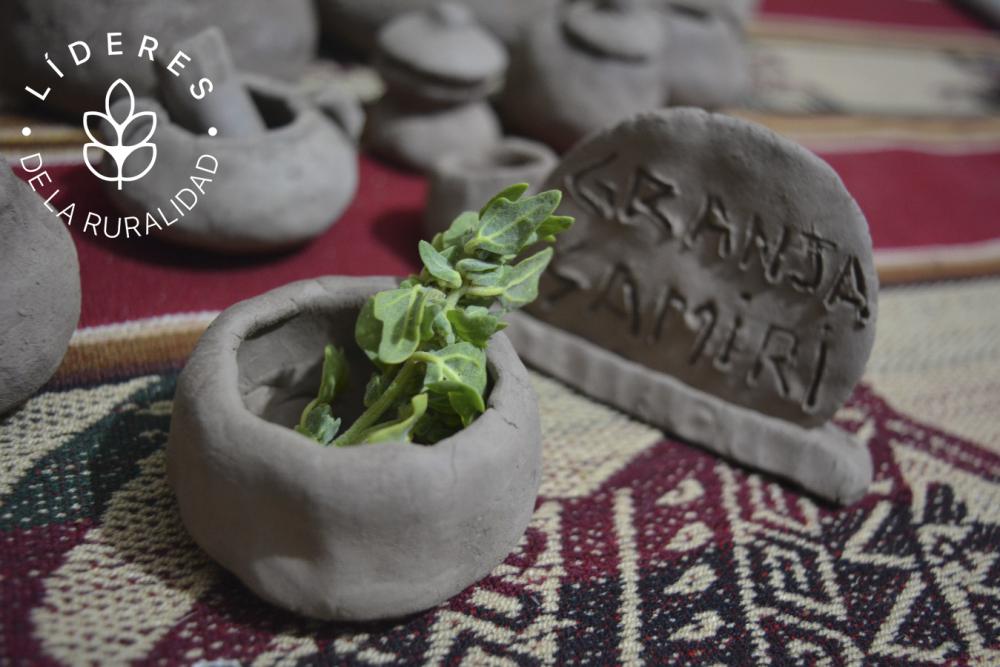
Muchos no conocen la cañahua, porque si bien su cultivo tiene una tradición milenaria, había sido relegado al olvido en tiempos de la colonia. De hecho, cuando Trigidia comenzó, la cañahua se cultivaba en Bolivia únicamente para el autoconsumo. Después de diez años se ha generado una dinámica económica virtuosa, gracias a la cual hoy más de 1.500 familias la producen y la comercializan.
“Soy una mujer quechua boliviana orgullosa de sus raíces que ha logrado descubrir sus propias capacidades al romper los estereotipos machistas. En el área rural de Bolivia muchas veces se considera que una mujer no puede liderar una empresa o un emprendimiento, pero yo demostré que se puede ser una mujer feliz y realizada”, dice Trigidia, creadora de la granja Samiri, en el municipio andino de Toledo, donde empezó cultivando apenas una hectárea y hoy trabaja sobre 80.
“Quiero que la cañahua se posicione en la canasta familiar de los bolivianos, porque es un súper alimento, pero muchos no lo saben”, se entusiasma ella, que en 2017 fue una de las impulsoras de la “Red Nacional de Saberes y Conocimientos en Cañahua”.
Esta organización, que tiene el apoyo del Instituto Interamericano de Cooperación para la Agricultura (IICA) y una una amplia participación de actores, busca darle visibilidad a la cañahua, dada su importancia para la seguridad alimentaria y sus cualidades resilientes al cambio climático.
El regreso al campo
Trigidia conoció a su esposo, también hijo de agricultores, en la universidad, en la ciudad de Oruro. Ambos se graduaron como ingenieros agrónomos, se casaron, tuvieron cuatro hijos y se desempeñaron en distintos trabajos en la función pública y en consultorías.
Durante las vacaciones ellos iban a la zona rural a colaborar con los suegros de Trigidia en las tareas agrícolas y ella comenzó a sentirse cada vez mejor. “Me di cuenta –explica- que quería estar en contacto con la tierra. No quería seguir con un trabajo de escritorio. Comencé a conectarme con la naturaleza y a preguntarme si era feliz en la ciudad”.
Fue entonces cuando su suegro le contó a Trigidia sobre el cultivo y el valor nutritivo de la cañahua, grano sobre del cual él tenía un gran conocimiento adquirido de manera ancestral.
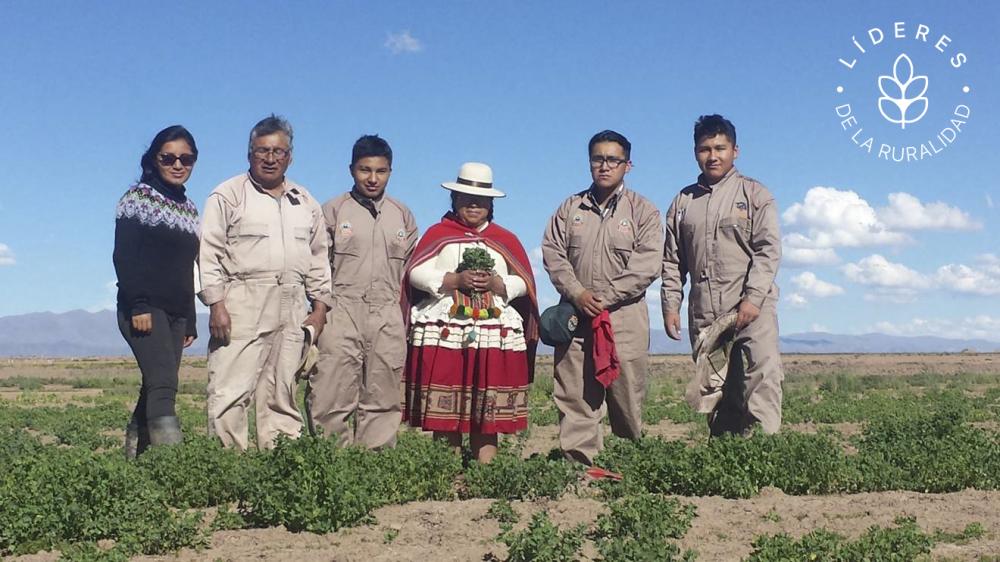
Con toda la familia, Trigidia decidió entonces mudarse al campo, donde iniciaron la trabajosa construcción de la granja Samiri. Al volver a la ruralidad, a los 45 años, Trigidia volvió a ponerse las polleras que son el símbolo de la mujer campesina en Bolivia y tuvo la satisfacción de reencontrarse con sus raíces.
“Nos propusimos ser los primeros productores de cañahua para comercialización de Bolivia Hice un diagnóstico de todas la fortalezas y debilidades que tenía el cultivo. Nos pusimos objetivos a diez años y durante los primeros cinco años solo invertimos y fuimos construyendo la granja paso a paso”, cuenta.
Trigidia recuerda que lo primero que tuvo claro es que, más allá de su saber técnico como ingeniera agrónoma, resultaba imprescindible rescatar el conocimiento ancestral y también respetar el medio ambiente.
“La cañahua estaba olvidada por muchos factores. Antes de la conquista era un alimento principal, pero luego fue reemplazado por otros introducidos en nuestro continente y se lo cultivaba a escondidas. Hasta las décadas de 1960 o 1970 no tenía un valor comercial. Cuando nosotros arrancamos, los campesinos solo cultivaban cañahua para autoconsumo, pero yo le dije a mi suegro que íbamos a lograr exportar”.
El trabajo en la granja Samiri logró identificar cuatro variedades de las cuales ya se han registrado dos y están liberadas para la comercialización. También consiguió mejorar los rendimientos, ya que se obtenían entre 7 y 8 quintales por hectárea y hoy, gracias a la combinación de conocimiento ancestral y científico, se llega hasta a 22. Así, hoy la cañahua se comercializa en presentaciones de pito (harina con azúcar y especies), harina, pipocas (palomitas), barras energéticas, api (bebida caliente), sopas instantáneas, galletas y cup cakes.
“Granja Samiri es la suma de muchas organizaciones que nos han apoyado. Hemos tenido que superar muchos obstáculos. Entendimos que teníamos que desarrollar productos de acuerdo al gusto del consumidor final. Y también supimos que debíamos hacerlo con un uso sostenible de los suelos, por lo que producimos tres años y luego el suelo descansa. Además, en Samiri está prohibido matar cualquier animal, porque entendemos que todos los seres vivientes tienen su función en la naturaleza”, dice Trigidia.
“Hicimos un seguimiento agronómico del cultivo –agrega-, y descubrimos que tiene mucha resiliencia climática, ya que hace 20 años llovía más que ahora. Yo lo considero un cultivo inteligente porque es resistente a las heladas y ha logrado adaptarse al cambio climático”.
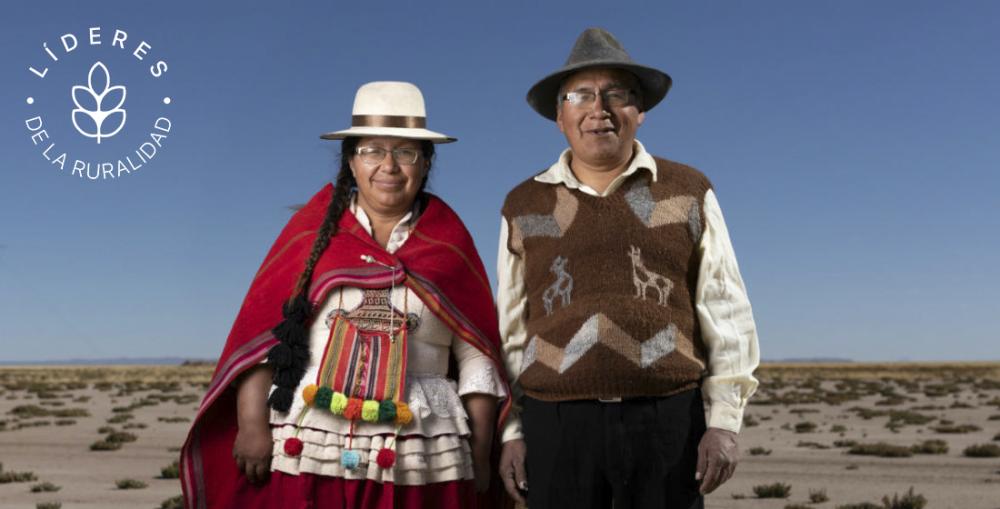
Cuando le preguntan si se considera una mujer empresaria, Trigidia, quien durante la pandemia sufrió el durísimo golpe de la muerte de su esposo a causa de Covid-19, responde que es una mujer soñadora.
“Renuncié a un trabajo que no me satisfacía y me arriesgué a empezar de cero, lo que no ha sido fácil porque ya teníamos cuatro hijos. En Bolivia, especialmente en el área rural, todavía hay mucho machismo. Una mujer tiene que cocinar, lavar y ser buena hija. Yo no confiaba en mí misma, necesitaba el aval de mi esposo y para todo. Tenía temor de que mi matrimonio no funcionara si descuidaba el hogar”, recuerda.
“La cañahua –concluye- me hizo ser una mujer fuerte, guerrera. Ver este cultivo tan pequeñito con capacidad de sobreponerse a factores climáticos tan adversos, que nunca se rinde y sigue adelante, me enseñó a amarme a mí misma y a entender que tenía la capacidad de hacer en la vida lo que me propusiera”.
Más información:
Gerencia de Comunicación Institucional


